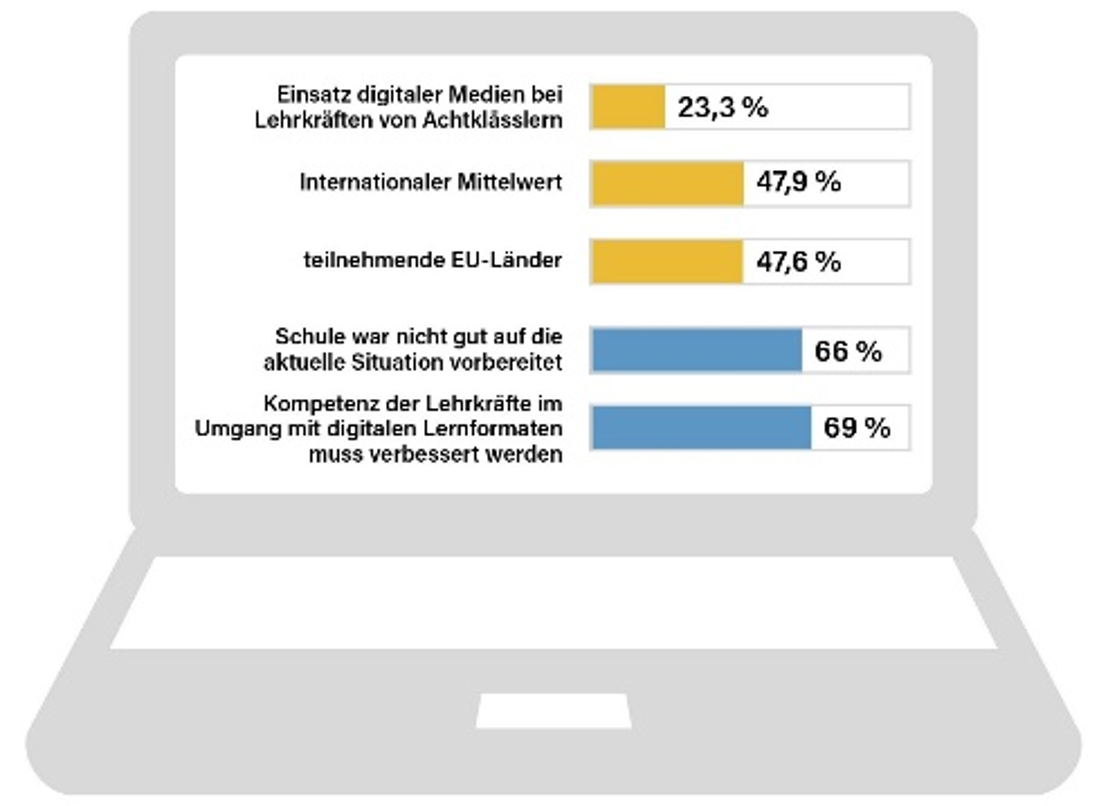Digital skills are crucial for our future

©AdobeStock BillionPhotos.com
The Corona Crisis has brought digitalisation in education into focus afresh, as schools and colleges have had to make an abrupt shift to online learning. Digital skills are increasingly in demand in the professional and working world. For employees, continuing education is crucial to keep up with the momentum.
Teaching digital literacy
Implement DigitalPakt Schule quickly
Arouse interest in computer science
Training with a digitalization perspective
Flexible further training
Firmly anchoring digital education at the university
Enquete Commission "Vocational Training in the Digital World of Work" of the German Bundestag
The commission of enquiry is to investigate where and how vocational education and training needs to be adapted to the requirements of the digital world of work and to what extent the strengths of the system can be further developed and possible barriers to access can be removed. The aim is to draw up constructive and practical recommendations for improving the framework conditions for vocational education and training in the digital world, taking into account the concerns of industry and in particular training companies. The BDA is involved in the monthly plenum and in two of the seven project groups.
PDFs and links on the topic
Facts and figures
- Only 23.3 percent of teachers of eighth graders use digital media in the classroom on a daily basis. Germany is well below the international average of 47.9 percent (source: ICILS 2018).
- 69 percent of teachers stated in the school closures that the greatest need for improvement was in their own digital skills (source: German School Barometer April 2020).








